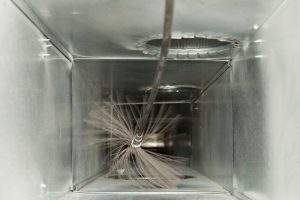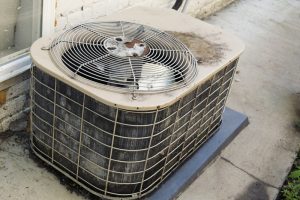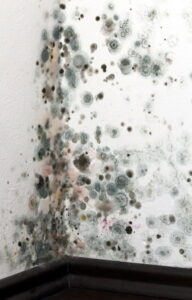The weather is getting cool and beautiful! The foliage is changing! It’s time for fall festivals, family gatherings, and getting ready for winter. And soon, you’ll be spending a lot more time indoors. Will you be breathing clean, fresh air in there? Or will you be breathing clouds of dust, and maybe even mold spores? How can you tell?
The air you breathe all winter has been circulating around your home and going through your HVAC system’s ductwork over and over, bringing with it anything that lurks inside those ducts. And what is going on inside your ductwork? Since you can’t easily see or clean in there, who knows? What you need is professional duct cleaning. Here’s why.





